M4: Alternative solutions to motorway travel
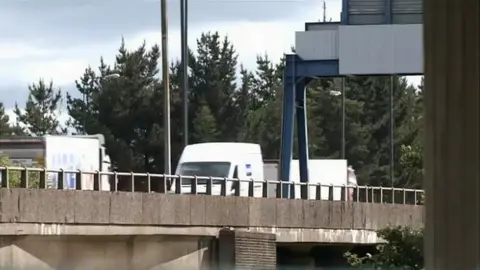 BBC
BBCWith the M4 relief road scrapped and traffic forecast to increase right across the motorway in south Wales during the next decades, what will the future look like?
Official projections suggest more vehicles and slower traffic at peak times.
A commission will now look at alternative solutions to the problems around Newport.
So do we need to change the way we live and our relationship with the car?

The experts
Prof Mark Barry, a transport expert at Cardiff University, said the M4 has been important in attracting manufacturing, but there have been negatives.
"The downside is we've built a lot more housing, retail and other business parks around the M4, that's then made us over-dependent on the car," he said.
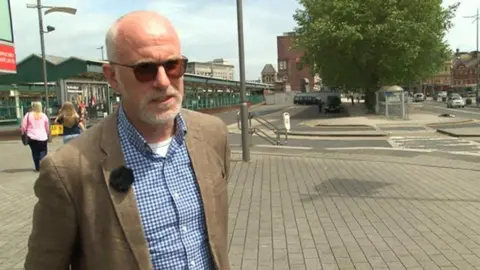
"One of the consequences of the M4 is that it's driven our land-use planning, especially for housing and retail, around that infrastructure. So we've become much more dependent on the M4 than I'd argue we ought to have done.
"We can't change that quickly. We need to think more carefully about the kind of houses we build, the kind of offices we build, the kind of retail we want, and rather than building what can only be accessed via a car, we start building things in places you can get to, on public transport, of to which you can walk or cycle.
"The challenge for the future is, no matter what transport we put in, we need a much more explicit and stronger link between planning and that transport investment."
He believes the motorway will remain vitally important for moving goods and people but what also needs to happen is a drive away from car dependency.
He also thinks that in the future more people will need to think about apartment living, in centres and close to public transport - and also change the way we work.
"With technology, with a stronger focus on public transport and a different approach to planning we can create a more sustainable way of living. It will take time and some tough choices," he added.
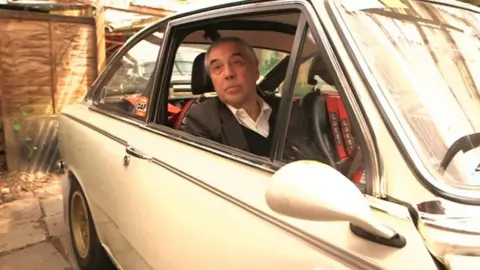
Dr Paul Nieuwenhuis, co-director of Cardiff University's Centre for Automotive Industry Research, is a self-confessed car fanatic - and is a thinker on how we need to use them in the future.
"I've loved cars from an early age - the design, the freedom they give," he said.
"The cars I drive, most people wouldn't recognise - I like the history, the way they're put together. I've got a 1971 Daf 55 coupe which has been modified for rallying and I use for classic tours. I'm Dutch and I was born close to where they were made. Cars are used for people to express themselves."
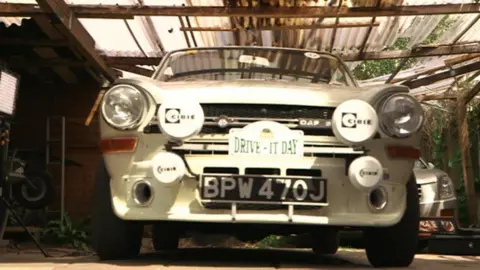
Dr Nieuwenhuis said it was possibly easier to persuade people from a car onto a bike, rather than onto public transport, as on a bike people still have control.
But he can see a decline in car ownership, particularly among the younger generation. There could be increasing use of shared cars, as well as automated cars in the future. He said Wales' potential for electric cars was promising, given its access to renewable energy.
"I see in the next 10 years, we'll see more autonomous pods rather than ordinary cars becoming autonomous. I think it will be a separate mode of transport," he said.
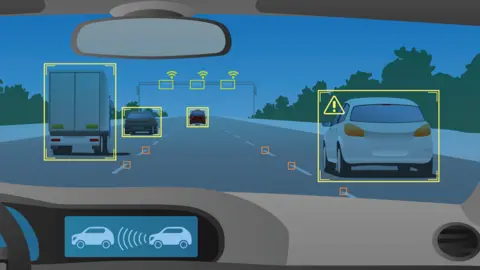 chombosan/Getty Images
chombosan/Getty Images"At the moment about 40% of energy in an autonomous car is used for the computers on board - that's how complicated they are. This will possibly work fine in carefully-controlled urban environments but put yourself in rural mid Wales, on a single track road, sheep crossing - it's very difficult to engineer for that and why would you do it for such a limited market?"
But while they might improve air quality, autonomous electric cars in the future might not solve issues of congestion on the M4 or anywhere.
"You could send them to pick up your take-away, they could drive you to work and then drive back home because it's too expensive to park in town, so you could actually increase congestion. This is why it's been suggested autonomous cars should only be shared," he added.

- The cost of travel has risen faster than the cost of living since 1997 - but the cost of public transport, like buses and trains, is going up more steeply than the cost of running a car
- 76% of households own at least one car - that's 1.5m vehicles in Wales
- Rail has less than a fifth of the passenger journeys of buses - but the Institute of Welsh Affairs last year said bus services in Wales "are in serious long-term decline" while walking and cycling levels were static or declining

The commuters
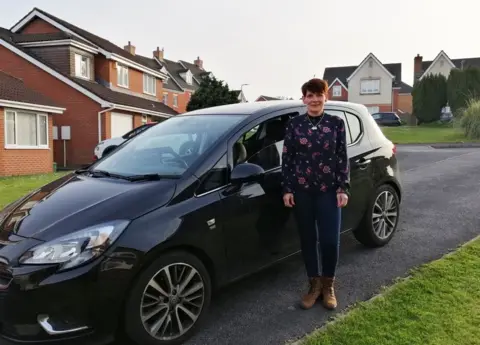
Elin Oliver and her husband Jeremy live in Llangennech, Carmarthenshire - off junction 48.
She now commutes to a company in Bridgend and also faces congestion when picking the children up from school.
So what's her answer? "If we had three lanes the whole length of the M4 then this problem would be alleviated.
"I don't see Newport as any different there than the whole way down the motorway. It's not going to help anyone else other than those just going as far as Cardiff. Because so many people no longer live where they work, it's making congestion worse."
Public transport isn't an option according to Elin at the moment. "I couldn't use it. I would have to go to Llanelli and get the train but then I couldn't get to the industrial estate where I work [from Bridgend station] as I'm not sure if buses go into the industrial park we work on."
Jeremy believes development has been planned in the wrong order.
"There's been a massive drive to build houses, which is needed, but we haven't got things like the roads developed first. It's in the wrong order," he added.
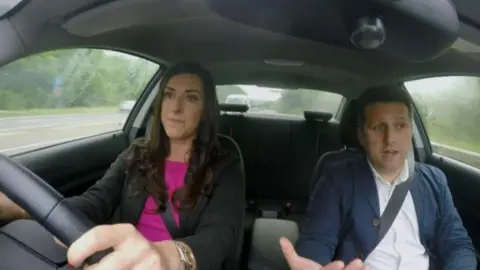
Karis Jones, a solicitor, sometimes takes nearly two hours to travel 37 miles from Monmouth to Cardiff - including the bottle-neck through the Brynglas tunnels.
She found the relief road decision "disappointing" and "frustrating".
"I don't mind the drive if it's a smooth run. If there's no stop-start it's only 45 minutes. But on days when there's bad traffic - and it's often - it's awful. I may consider moving to Cardiff or getting a job elsewhere," she said.
"Now that the tolls have gone it's a lot smoother to get to Bristol."
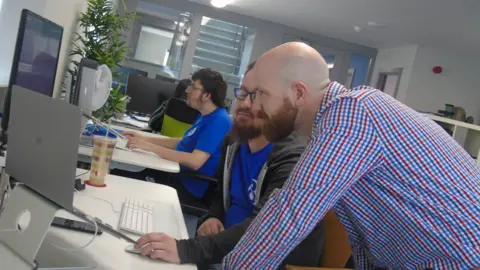
Dave Williamson, commutes to work with a software firm in the centre of Bridgend by train from his home in Cardiff. But he had an "horrific experience" of the M4 around Newport from a previous job.
"For me the relief road would have not been fit for purpose," he said. "It needs to be something more substantial. For me it's public transport."
"The proposal for the South Wales Metro is fantastic. I live in Rumney in Cardiff and we have no train station. But stations in the east of Cardiff have been proposed and that would make a huge difference. I think that learning can be applied across south Wales."
